With the sun glistening off the snow at Lee Canyon on a perfect January afternoon, Duane Serge sits on a deck chair watching his son and daughter on the slopes. One is learning how to snowboard and the other how to ski. 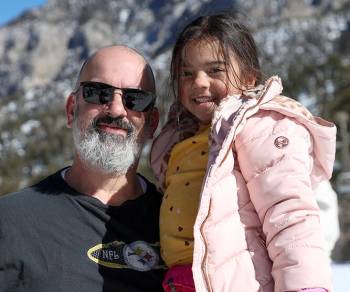
Serge did neither growing up.
And that’s the point.
Las Vegas has produced a major shift in those sports to which kids now gravitate, a growing trend to first-generation athletes taking to the outdoors and other unique settings. To those activities Mom and Dad had little clue about when blazing their own athletic journeys as youths. To those beyond the traditional games found being played across the town’s many fields and courts.
This is about skiing. Snowboarding. Rock climbing. Mountain biking. On and on. 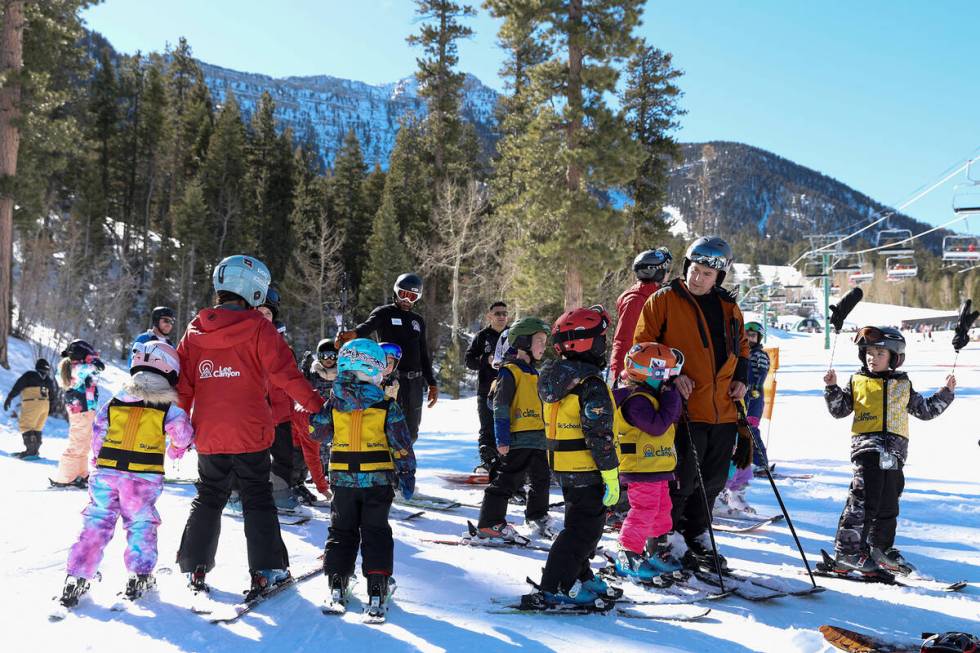
It is, some suggest, a byproduct of the suddenly ample professional sports scene in Las Vegas. With the Golden Knights, Aces and Raiders having made this a major league sports city, children have begun to seek out their own avenues for exercise. Many landed in nature doing so.
Participation numbers continue to grow, some at startling rates. Hundreds of kids pack Lee Canyon for weekend programs. More and more can be seen at climbing gyms and on biking trails.
Serge pauses to watch his son, 9-year-old Jacob, travel down a hill on his snowboard.
“We knew about this stuff but had never done it when we were younger,” Serge said. “But we want our kids to experience a whole lot of stuff. He’s outgoing and determined and loves the outdoors. We want to give our kids the opportunity for things like this.”
For being a first-generation athlete in some of the more individual and challenging of sports. 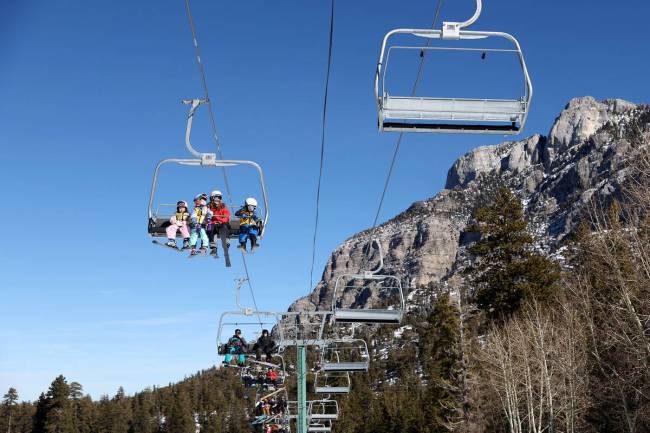
Parent issues
Dr. Travis Dorsch is the founding director of the Families in Sport Lab at Utah State University in Logan. His primary research is in youth sport and the proper lane of it as defined historically.
He wants you to consider that which makes Las Vegas — the desert, the mountains, the year-round climate. All of it is conducive to this surge in outdoor sports becoming so popular.
People, he says, are more excited about sports now across Southern Nevada. About being active and engaged and a part of this movement toward a healthier lifestyle. That all of it has been a good thing for those kids seeking different forms of recreation.
And then there was the pandemic.
“In large respect, COVID put up a mirror in front of all of us,” Dorsch said. “The constant was that it was a good thing to get outside and move our bodies, whether we were with people or not. So, we saw a large uptick in things like hiking and cycling — things you could do with others or independently. I don’t think that went away when COVID did. I think they’re enjoyable activities to engage in and became part of our lifestyle. 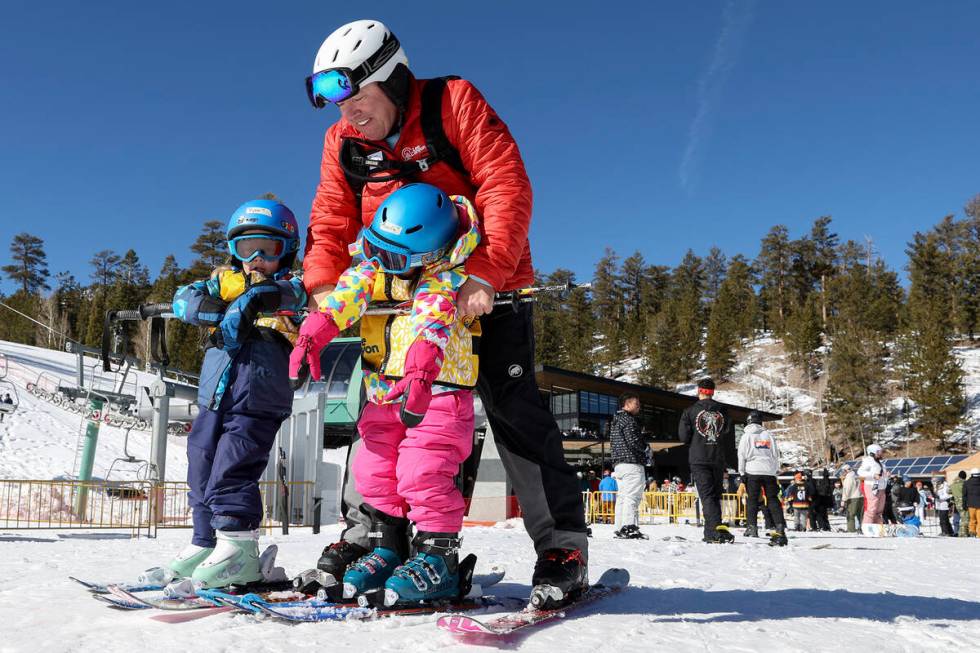
“I think kids and families are exploring other options to keep people active and moving and involved in sports that maybe doesn’t involve two teams and a scoreboard.”
There is also this: It has been an issue seemingly forever, the bad sports parent who interferes at every swing or shot or tackle. Volumes and volumes have been written on the subject, how best to diminish such a negative influence from those who know the kids best.
But such impact can be lessened when those criticizing never themselves engaged in a specific sport, relegated now to mostly observing their children.
“There’s something that, psychologically speaking, we all want to establish our own lane,” Dorsch said. “Same with kids. They don’t have to live up to Dad’s history. All they have to do is go out and smile and have fun and I (as a parent) get to learn right along with them.
“The cool thing is, most of these are lifelong sports.”
Climbing higher
Hudson Freeman of Las Vegas said he danced around other sports. Tennis. Gymnastics. Football. Now, he’s down to one.
Rock climbing.
“I started when I was 14 and am now 16 and love it,” he said. “My parents are completely lost in this sport.”
The gym was built in 1995. Now, Red Rock Climbing Center has 42 kids between the ages of 9 and 17 arriving for youth team training on a regular basis. Not long ago, that number of participants was eight. 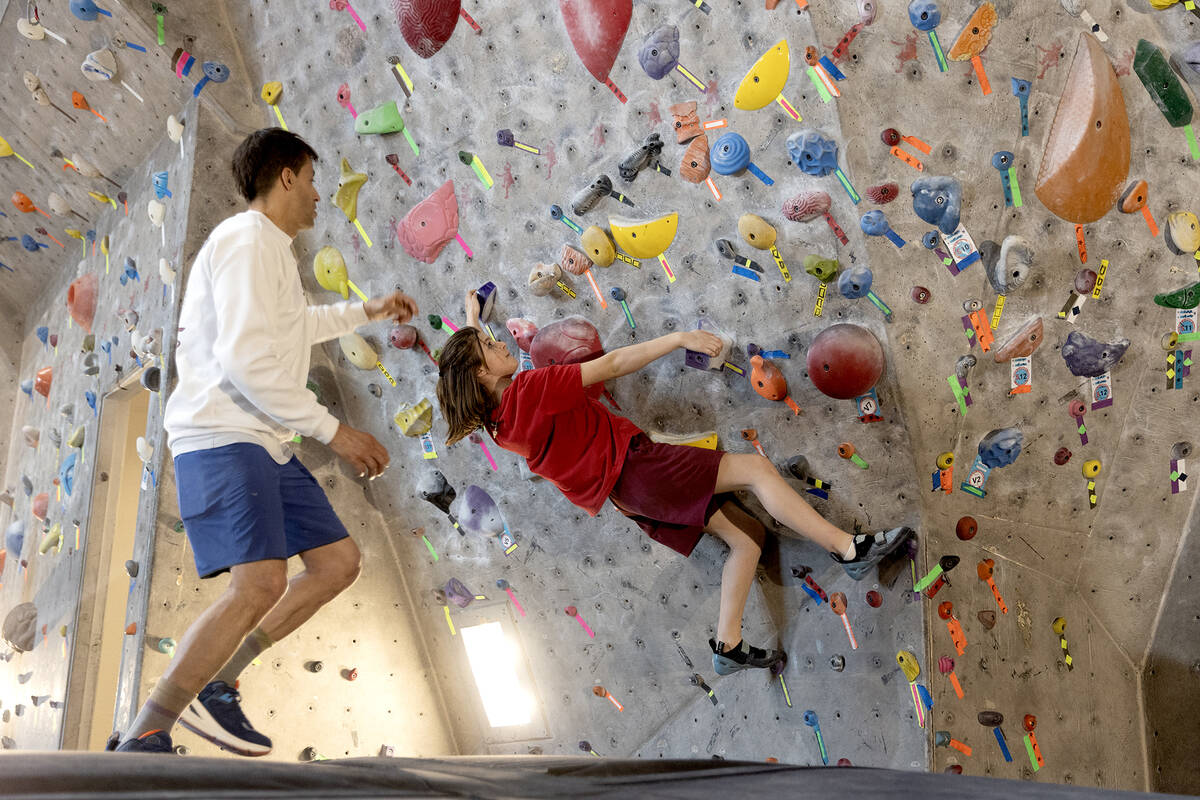
Michael Lorenzo owns the gym and coaches youth athletes while looking at things this way: Not everyone can make or afford, say, a club baseball or volleyball team. So, now they look for an alternative. Rock climbing is one.
“When parents come in here and don’t know what’s going on, it’s easier for the kids to enjoy themselves and you don’t see parents pushing them as hard,” Lorenzo said. “This helps with their confidence and builds them up. You can be on a climbing team.
“This can be a little more low-key fun. It’s full of fun.” 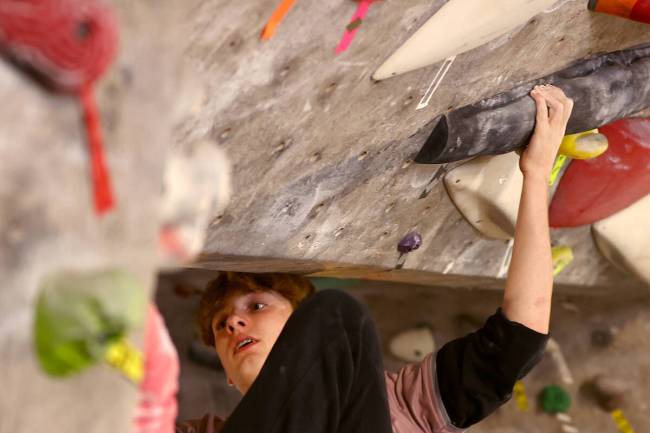
His biggest obstacle: Finding more space as the numbers grow.
Audrey Stroud is 13. She was introduced to the sport at age 11, when she came into the gym for an elementary school fundraiser.
“I fell in love with it,” she said. “Fell in love with the variety of climbing routes. It’s not easy, but it keeps you fit and engaged.”
Having fun
When he worked at Winter Park Resort in Colorado, Dan Hooper says more than 90 percent of youth were from skiing families. In Las Vegas, it’s less than half that.
“It’s definitely interesting to see that dynamic,” said Hooper, general manager at Lee Canyon. “In Colorado, Mom and Dad would drop the kids off so they could go skiing themselves. Here, most parents’ goal is not to get out on the snow, but to have their kids experience it for them while they sit on chairs like at a soccer game.
“When we first started out, it was a little frustrating, like, ‘Why aren’t parents getting out on the snow?’ But it has become apparent there has been a shift in generations in terms of, ‘I don’t want to do this, but I want my kids to have the opportunity to learn a skill and do a sport.’ ”
And it’s working.
Ten years ago, Lee Canyon might have had 15 kids participating on a weekend. Now, 200 are involved in programs on both Saturday and Sunday. February brings even higher numbers than January.
Last winter, it was reported that Lee Canyon’s youth ski-snowboard programs had grown by 190 percent since the 2017-18 season.
Hooper’s goal isn’t to build Olympic athletes. He merely offers both disciplines as alternative sports or ones you can do while also competing in others. It’s a different type of recreation.
There are avenues to pursue a more competitive level, but the majority of kids going up and down Lee Canyon slopes are there to have fun. To enjoy themselves without the constant pressures from Mom and Dad to excel and succeed at the highest of levels.
“I’d like to think there is a happy medium,” Hooper said. “The further the kids progress up the mountain, Mom and Dad aren’t there pushing and pushing. Skill building and improving have to be secondary. Otherwise, if you’re too much on the latter, it can turn kids off.” 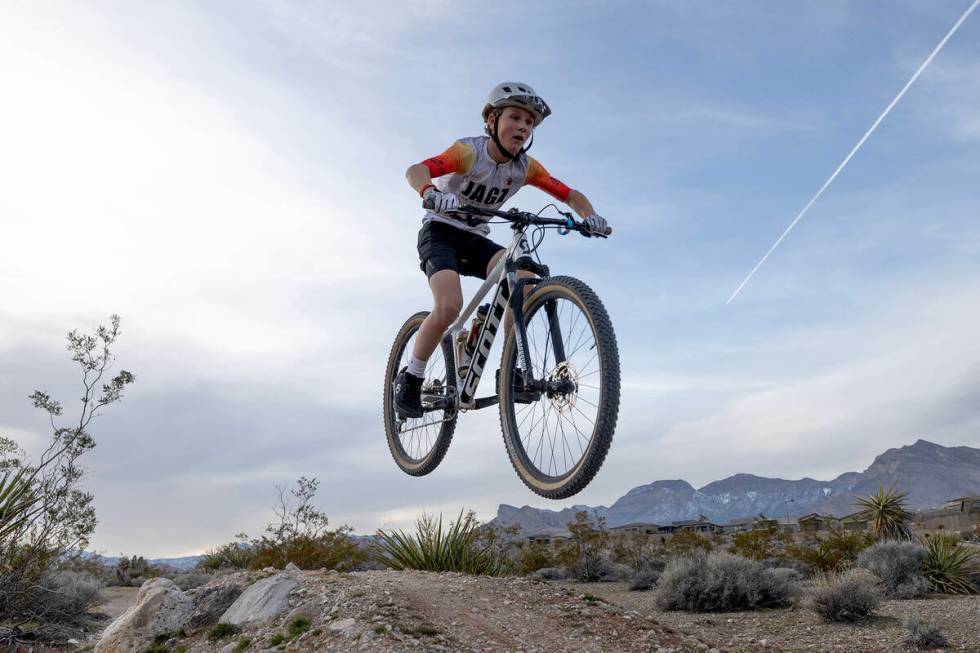
Blazing new trails
Christine Prescott talks about the kids who might not fit into the traditional ball-and-stick sports. Those who want to be outside in a different, more natural setting.
So they climb aboard a mountain bike.
Prescott is the director for the Nevada South Interscholastic Cycling League, which from 2020 to ’21 increased its participation numbers from 93 to 161. In 2002, that number was 166.
“It seems like a lot of kids who come to the sport at first are apprehensive,” Prescott said. “You’re joining a new peer group. We just make sure they’re getting the skills they need to ride at their own pace.
“It’s not something for everyone, but those who stick with it get engaged with the sport and keep coming back for more.”
Mike McDonald’s son wasn’t into standardized sports. Just didn’t take to them. So he and his father attended a mountain bike race in Utah. And they were hooked.
“He flew on a bike,” Mike said. “We want to create an atmosphere and desire for these kids to be outside the rest of their lives and be active and healthy and contribute to their community.” 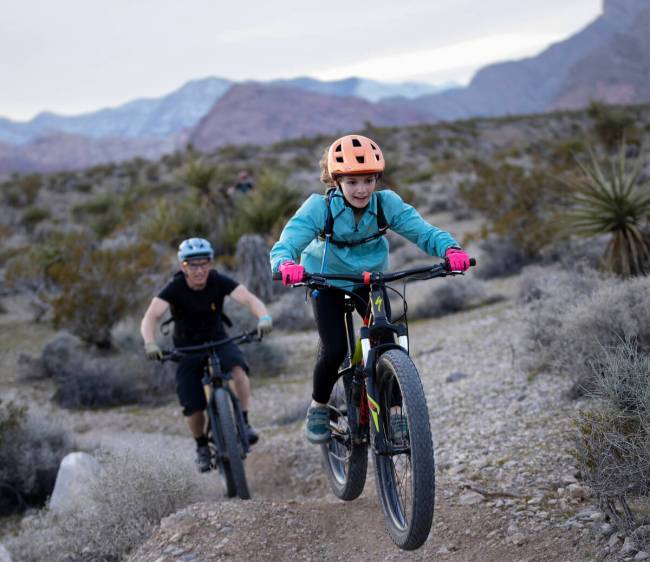
McDonald coaches the Red Burritos, a mountain bike team in the Summerlin area that includes 30 or so kids from grades 6 through high school seniors.
“Most of it is word-of-mouth,” said Gina Kurcz, who helps coach the team and has two sons on it. “If we’re on a trail and see a kid, we tell them about it. If we meet adults, we ask how old their kids are. We just recruit that way.
“Everybody can do this. There’s no aggressiveness from parents on the sidelines. Parents are cheering on each kid. You can be super good at any age and average at any age and you’re welcomed here. No one feels left out. We have kids that ride at every level of ability.”
It’s a crisp February afternoon at a local park and McDonald has set up an obstacle course across one field for his bikers to navigate. Cones, flags, jumps. One by one, the riders go through drills. The season’s first race is just days away.
“My mom has a bike but doesn’t really use it that much,” 12-year-old Taylor Kittle said. “It’s fun climbing the big hills and testing jumps and definitely going downhill.”
Said McDonald: “We’re trying to make this exciting for kids so more get involved.”
Grandma gets it
Robin Gavin takes her six grandchildren up to Lee Canyon on Saturdays during the ski season. This is her third year doing so.
Some of the kids ski and others snowboard.
Their ages range from 5 to 14. 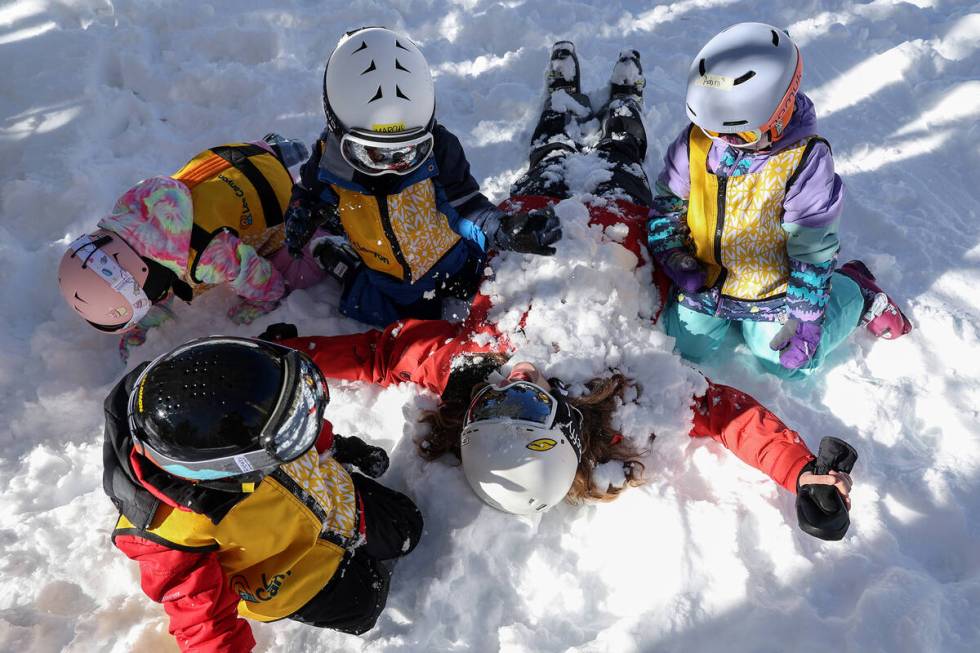
“They can get a little crazy on the slopes but love it,” Gavin said. “I showed them videos during the Winter Olympics and they all watch others on YouTube. You can get out of the city and get them off their iPads and laptops. Their other sports can get pretty competitive with parents, but this is just about watching them and having fun doing it.”
Her granddaughter, 13-year-old Savannah, also plays volleyball. But she sees a benefit of sport on the slopes.
“I just think it’s more fun to work on yourself to get better than a team sport,” she said. “I like having the freedom this gives you. It’s different that way.”
Kammy Pascual moved to Las Vegas from Hawaii in 2018. The family vacationed in Colorado 10 years ago, where her oldest son, Noah, picked up snowboarding. Now, her 11-year-old has done the same.
“I like the gliding part,” Nathaniel said. “I love this sport. It’s tough and easy to learn at the same time. I want to teach my mom.”
And that’s the point. ◆













